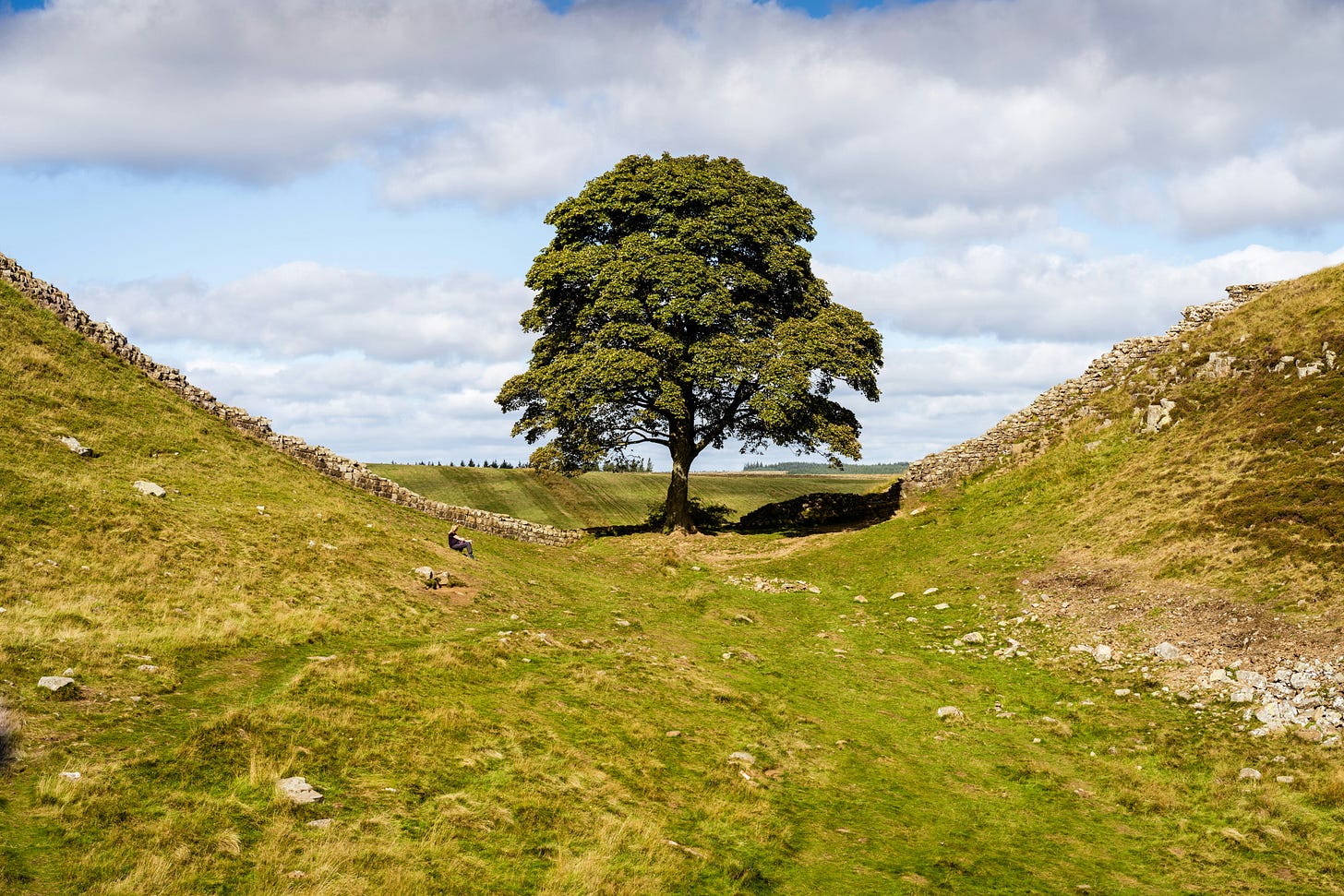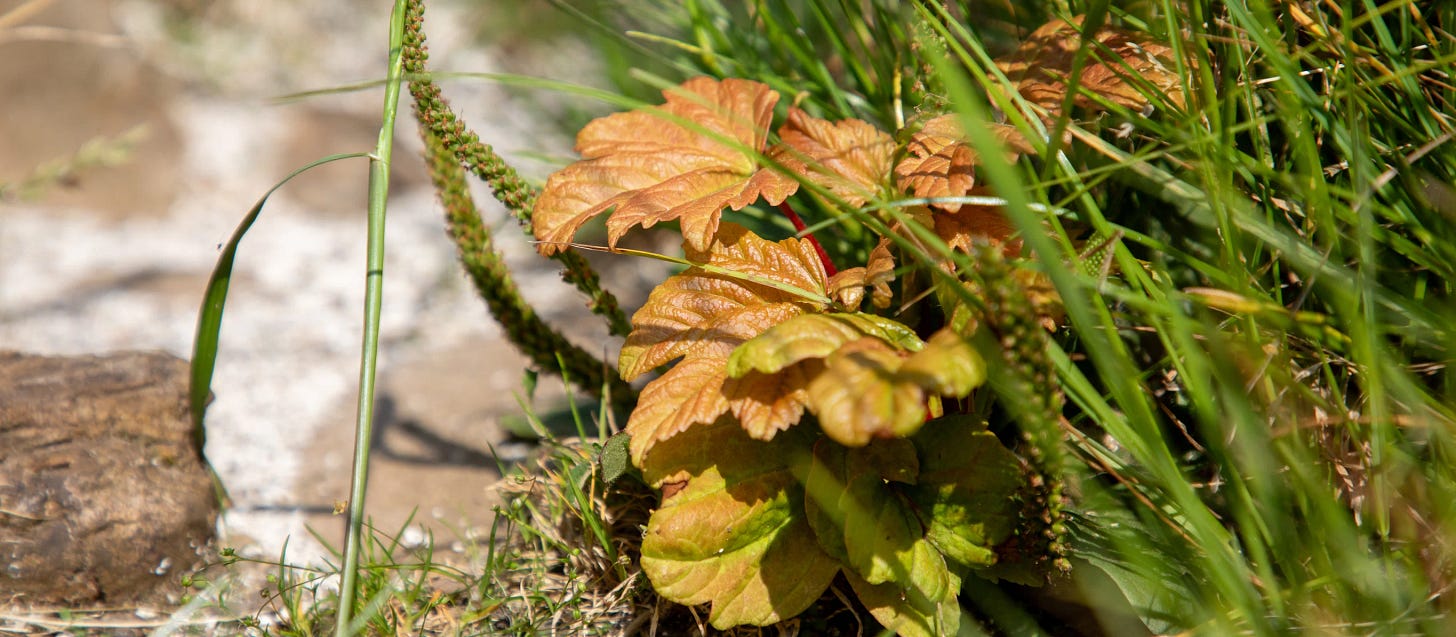Processing the different levels of reality
Kate here, asking how to bring our awareness to the less conscious stuff...
Dear Lynne,
Here we are, in the middle of February. I have that sense - that I think I have every year - that time has been moving incredibly slowly throughout January (and I do love the fact that we have let ourselves move slowly with it). Now we’re in February, though, it feels like it’s starting to speed up and I can feel that we’ll be in May before we know it. I’m looking forward to getting back into the rhythm of writing to you, partly to help put some markers down in that rush of time.
Thank you for your lovely last letter. And thank you for naming that we are living in really terrifying times. I do want to join you in explicitly saying that what we are exploring here is creating anti-fascist organisations - ones that are as free as possible from dominance and coercion, both over the earth and each other. There’s a big part of me that doesn’t want to get distracted by what Trump and Musk are doing - that’s what they want! they want you distracted and worried and mistrustful! - but it’s disingenuous to pretend like it isn’t happening and it isn’t having an effect (and that that effect isn’t seeping into UK and European politics and playing right into the hands of the far right here in the UK). The Overton Window is yanked to the right, and even supposedly left wing politicians are rushing to fill it.
But - what can we do, other than what we can do? We are here to think about building earth-centred holistic organisations - and even if we are just tiny bubbles floating against the tide, I want to be in those bubbles, making them stronger and more connected. There are many zeitgeists, or spirits of this age, I think, and we are by no means alone in trying to conjure up resistance to the drift towards domination.

I love your framing of facilitation as being sensitive to the spirit that exists in a group, and tuning into that. And I’m grateful for you putting it that way as it gives me an opportunity to dive a little into one of my favourite subjects - Processwork.
Last year, I was part of a foundation course in Processwork convened by ProcessworkUK, and it was a super profound (and at times deeply difficult) experience. It’s one of those things that the closer you get to it, the harder it can be to describe. At its heart it’s an awareness practice, that trains you to notice and then work with the unconscious or subconscious processes that are present in you, or in a group. It’s a methodology that is used to train both facilitators and psychotherapists, and I loved how playful it can be. Many of these sub conscious processes show up in our bodies in one way or another, and I have found that the tuning into my own body as a channel of information when facilitating a group has been really profound.
I’m very much at the beginning of my understanding of this stuff, but one thing that has stuck with me and I think might be helpful here, is the way Processwork describes our experience of reality.
In this model, there are three levels of the way we experience and perceive the world, all of which are always present:
consensus reality - the things we can all agree on (this obviously varies group to group and culture to culture!)
dreamland - the subjective experiences we all have but often (especially in western cultures) don’t pay attention to or value - body sensations, fleeting thoughts or impressions, moods, the way different experiences have shaped us…
the essence level - this is the hardest one to describe in words - it’s something we feel more than describe. Some call it the Dao, the undifferentiated, connecting experience that might be felt as the atmosphere between us, and the recognition that we are all connected.
Often we only operate - and facilitate - at the consensus reality level. The servers are down! The budget doesn’t balance! The bathroom needs cleaning! The fascists are in power! And these things are all true. But what I like about this model is that it creates space for more than just the facts, it recognises that the feelings, the moods, the urges that we all have are just as real. And that if we can become aware of the more subjective, dreamlike realities that are happening, we might start to be able to really shift things. If we follow and unfold those experiences - we are tired, we are overwhelmed, we are scared - we start to (maybe!) be able to connect with each other at that deeper level of reality. Even just naming how you are experiencing the “field” that exists between us all can unlock new insights.

There’s much more I could go into here, but maybe that’s enough for today. What do you think it would look like to bring these three levels of reality into thinking about organisations?
with deep processy love!
Kate

